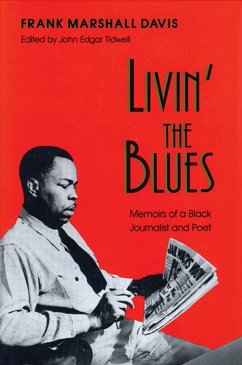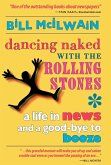Frank Marshall Davis (1905-1987) was a prominent African American poet and journalist in the 1930s and 1940s. Although not as familiar a name as his contemporaries Zora Neale Hurston, Richard Wright, and Langston Hughes, Davis was a significant figure during the Depression and the Second World War. Born in Arkansas City. Kansas, and educated at Kansas State College, he spent much of his career in Chicago and Atlanta. He wrote and published four important collections of poetry: Black Man's Verse (1935), I Am The American Negro (1937), Through Sepia Eyes (1938), and 47th Street: Poems (1948), which brought him high esteem and visibility in the literary world. Davis turned his back on a sustained literary career by moving to Hawaii in 1948. There he cut himself off from the busy world of Chicago writers and virtually disappeared from literary history until interest in his work was revived in the 1960s Black Arts Movement, which hailed him as a pioneer of black poetry and established him as a member of its canon. Because of his early self-removal from the literary limelight, Davis' life and work have been shrouded in mystery. Livin' the Blues offers us a chance to rediscover this talented poet and writer and stands as an important example of black autobiography, similar in form, style, and message to those of Langston Hughes and Richard Wright. In addition to his literary achievements, Davis was an editor for several African American newspapers in the 1930s: the Chicago Evening Bulletin, the Chicago Whip, the Chicago Star, and the Atlanta World. In the early 1940s he began teaching what he believed to be the first history of jazz course, at the Abraham Lincoln School in Chicago, and in 1945he began broadcasting his own radio jazz show, "Bronzeville Brevities", on WJJD in Chicago. Active in the civil rights movement, Davis served as vice chairman of the Chicago Civil Liberties Committee from 1944 to 1947 and was a member of the national board of the Civil Rights Congress from 1947 to 1948. His autobiography, Livin' the Blues, chronicles Davis' battle to overcome a negative self-image and to construct a healthy, self-assured life. Realizing early on that the white world aimed to silence black men, Davis devoted his life to self-empowerment through the written and spoken word and to vigorous promotion of black expression through art and activism. The common thread connecting the disparate events of Davis' life is the blues. By rooting itself in a blues sensibility, Davis' life story is one of triumph over economic hardship and racial discrimination. Davis was a powerful, dramatic writer, and his autobiography vividly captures what it was to grow up black and poor, and what it was like to struggle toward both economic and emotional self-sufficiency.
Hinweis: Dieser Artikel kann nur an eine deutsche Lieferadresse ausgeliefert werden.
Hinweis: Dieser Artikel kann nur an eine deutsche Lieferadresse ausgeliefert werden.








